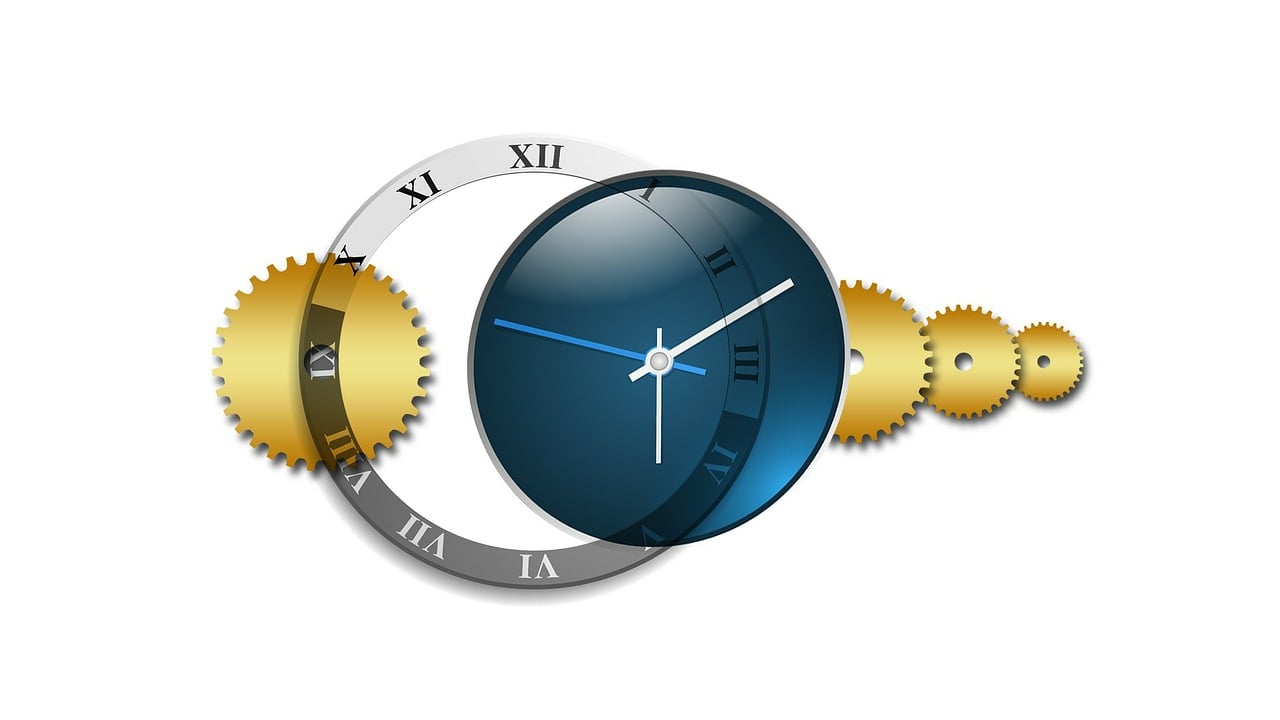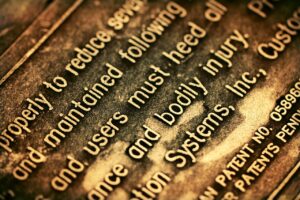La racionalización es un mecanismo de defensa común que muchos de nosotros utilizamos para justificar decisiones, acciones o resultados que no nos han salido como esperábamos. Algunas veces, esta estrategia psicológica puede ser útil para evitar la ansiedad y la crítica interna y externa, pero en otros casos puede llevar a una distorsión de la realidad y a un obstáculo para el crecimiento personal.
En este sentido, la racionalización surge como un mecanismo de defensa cuando nos enfrentamos a las consecuencias negativas de nuestras acciones o expectativas. Esto se traduce en buscar explicaciones racionales pero no reales para nuestros errores. Por ejemplo, podemos justificar una falta de habilidad física argumentando que la uva era verde y, por lo tanto, no valía la pena intentar alcanzarla. Otra forma común de racionalización es excusarse el fracaso diciendo que fue culpa de alguien más o que se trató de una circunstancia excepcional.
Sin embargo, cuando la racionalización se convierte en un patrón constante, puede ser un indicador de enfermedad mental. En efecto, la racionalización se une a otros mecanismos de defensa para protegernos de la verdad dolorosa sobre nuestros errores y limitationes. Alguien que se racionaliza constantemente puede estar evitando confrontar sus limitaciones y trabajar en su crecimiento personal.
La racionalización: una defensa al fracaso
La racionalización surge como un refugio seguro para nuestras conciencias cuando nos enfrentamos a la realidad del fracaso o la desilusión. En lugar de admitir nuestros errores o limitaciones, buscamos justificaciones lógicas y convincentes que nos permitan mantener nuestra imagen como personas exitosas y capaces.
Pero ¿qué es realmente la racionalización? En cierto sentido, es una forma de engañarnos a nosotros mismos. Buscamos explicaciones para nuestros fracasos que no tienen relación directa con la realidad. Por ejemplo, podemos culpar al sistema, a otros o incluso a la mala suerte en lugar de admitir nuestras propias limitaciones y falta de habilidad.
La racionalización puede ser especialmente peligrosa cuando nos hace creer que nuestros errores son menores de lo que realmente son o que no hay nada que puedan hacer para mejorar. En lugar de aprender de nuestros fracasos y utilizarlos como oportunidades de crecimiento, simplemente evitamos la confrontación y continuamos actuando de la misma manera.
En este sentido, la racionalización puede ser una defensa contra el posible dolor y la ansiedad que proviene del fracaso. Pero al final, es un remedio temporal que no resuelve el problema. La verdadera cuestión es qué podemos hacer para superar nuestros errores y crecer como personas.
Cómo funciona la racionalización en nuestro interior
La racionalización funciona de manera profunda dentro de nosotros, como un mecanismo de defensa que nos protege de la verdad dolorosa sobre nuestros errores y limitaciones. Cuando fracasamos o no alcanzamos nuestros objetivos, nuestra mente automáticamente busca excusas para justificar el resultado.
En primer lugar, nuestra mente realiza una rápida evaluación de la situación y establece un relato sobre lo que sucedió. Esto puede incluir elementos como la falta de habilidad, las circunstancias desfavorables o la mala suerte. Luego, nace la justificación, que es una explicación racional para el resultado.
Sin embargo, esta justificación no siempre refleja la realidad. A menudo, es una distorsión exagerada de lo que realmente sucedió. Por ejemplo, podemos justoificar nuestra falta de habilidad argumentando que no tenemos suficiente experiencia o información, cuando en realidad apenas hemos querido aprender o mejorar.
La racionalización también puede ser un proceso instantáneo y automático. No siempre nos damos cuenta de que estamos justificando nuestros errores y evitando la confrontación con nuestra verdad interior. Sin embargo, es importante ser conscientes de este proceso para poder tomar medidas efectivas para aprender y crecer.
La racionalización funciona como un mecanismo de defensa que nos protege de la verdad dolorosa sobre nuestros errores y limitaciones. Sin embargo, al final, no resuelve el problema y puede evitar nuestro crecimiento personal si no nos damos cuenta de este proceso y nos esforzamos en aprender de nuestros errores.
Ejemplos cotidianos de la racionalización errónea
La racionalización errónea es un fenómeno común que podemos observar en nuestras vidas diarias. A continuación, te presento algunos ejemplos que ilustran cómo la racionalización puede surgir en diferentes situaciones.
Por ejemplo, cuando nos enfrentamos a un plazo inminente y no lo logramos cumplir, puede ser común justificar el fracaso argumentando fue que no tuve tiempo suficiente para hacerlo o la falta de apoyo de mi equipo. Sin embargo, la realidad puede ser que simplemente no estuvimos motivados o no hicimos el esfuerzo necesario para lograr el objetivo.
Otro ejemplo común es cuando nos enfrentamos a una situación desagradable o incómoda. En lugar de admitir nuestro miedo o ansiedad, podemos racionalizarla como no me duele tanto como creí que me iba a doler o eso es solo mi imaginación. Sin embargo, la realidad puede ser que estamos evitando confrontar nuestros verdaderos sentimientos y pensamientos.
También es común justoificar nuestros errores o acciones inapropiadas argumentando fue una sola vez o no fue tan malo como parece. Sin embargo, la realidad puede ser que estamos perpetuando un patrón de comportamiento perjudicial y no estamos tomando medidas efectivas para cambiar.
La racionalización errónea es un fenómeno común que nos hace creer que los errores y limitaciones son menores de lo que realmente son. Sin embargo, al final, nos impide crecer y aprender de nuestros errores si no nos damos cuenta de este proceso y nos esforzamos en reconocer la verdad interior.
Diferenciación entre la defensa y las ideas irracionales
La defensa y las ideas irracionales son dos conceptos relacionados pero diferentes.
Defensa: La defensa se refiere a la resistencia natural que tenemos ante el estrés, el dolor o la ansiedad. Esta reacción es normal y saludable, ya que nos permite protegernos de los daños emocionalmente. Sin embargo, cuando la defensa se vuelve exagerada o inapropiada, puede estar obstaculizando nuestro crecimiento personal.
Por ejemplo, si alguien nos hace un comentario desagradable, nuestra primera reacción puede ser defender nuestros sentimientos y nos decir eso no tiene sentido. En este caso, nuestra respuesta es una defensa natural que nos permite protegernos del dolor o la ansiedad. Sin embargo, si nos convertimos en paranoicos y creemos que todos están conspirando contra nosotros, ya estamos siendo exagerados en nuestra reacción y podemos estar obstaculizando nuestro crecimiento personal.
Ideas irracionales: Las ideas irracionales son creencias o pensamientos que no se ajustan a la realidad o las evidencias. Estas ideas pueden ser fomentadas por la defensa y pueden nos impedir de tener una visión clara y realista del mundo.
Por ejemplo, si creemos que todos los errores que cometimos son inaceptables y que podemos fracasar en cualquier momento, estamos formulando una idea irracional. Esta idea puede ser fomentada por nuestra defensa y puede nos hacer sentir ansiosos o culpables sin una base realista.
La defensa es natural y saludable, mientras que las ideas irracionales son creencias o pensamientos que no se ajustan a la realidad. Es importante reconocer la diferencia entre ambos para poder tener una visión clara y realista del mundo y crecer personalmente.
El impacto de la racionalización, tanto positivo como negativo
La racionalización puede tener un impacto tanto positivo como negativo en nuestras vidas.
Impacto positivo:
- Protección emocional: La racionalización nos ayuda a protegernos emocionalmente al evitarnos el estrés y la ansiedad causados por las situaciones desagradables.
- Consolidación de creencias: La racionalización puede ayudar a consolidar nuestras creencias y valores, permitiéndonos mantener nuestra identidad y autoestima intacta.
- Ajuste emocional: La racionalización nos permite ajustarnos emocionalmente a las situaciones, lo que nos permite encontrar un equilibrio emocional y reducir la ansiedad.
Impacto negativo:
- Evitación de problemas: La racionalización puede evitarnos abordar los problemas reales y necesitar cambiar nuestros hábitos o comportamientos.
- Perpetuación de patrones perjudiciales: La racionalización puede perpetuar patrones de comportamiento negativos, impidiendo que cambiamos nuestra forma de actuar o nuestro pensamiento.
- Desarrollo de distorsiones cognitivas: La racionalización puede llevar a la formación de distorsiones cognitivas, es decir, creencias o pensamientos que no se ajustan a la realidad.
- Dificultad para enfrentar el miedo o la ansiedad: La racionalización nos hace sentir cómodos al respecto del miedo o la ansiedad, pero no resuelve el problema y puede impedir que abordamos nuestros verdaderos sentimientos y necesidades emocionales.
La racionalización puede tener un impacto positivo si nos ayuda a protegernos emocionalmente y consolidar nuestras creencias, pero también puede tener un impacto negativo si nos impide enfrentar nuestros problemas reales o perpetuar patrones de comportamiento perjudiciales. Es importante reconocer el proceso de racionalización y reflexionar sobre su efecto en nuestra vida para poder tomar medidas efectivas para crecer personalmente.
La terapia en la comprensión de la racionalización
La terapia es un enfoque valioso para comprender y superar la racionalización errónea. A continuación, te presento algunas formas en que la terapia puede ayudar:
- Identificación y reconocimiento: La terapia nos ayuda a identificar y reconocer patrones de racionalización y cómo estos patrones afectan nuestro pensamiento y comportamiento.
- Análisis de creencias irracionales: El terapeuta nos ayuda a analizar nuestras creencias y pensamientos para identificar aquellos que son irreales o distorsionados, lo que nos permite cambiar nuestra forma de pensar y actuar.
- Desbloqueo de sentimientos: La terapia nos ayuda a desbloquear nuestros verdaderos sentimientos y necesidades emocionales, lo que nos permite abordar nuestros problemas de manera más efectiva.
- Ajuste del pensamiento: La terapia nos ayuda a ajustar nuestros pensamientos para que sean más realistas y constructivos, lo que nos permite tomar decisiones informadas y vivir de una manera más plena.
- Práctica de la auto-reflexión: La terapia nos ayuda a desarrollar habilidades de reflexión sobre nosotros mismos, lo que nos permite ser más conscientes de nuestros pensamientos y sentimientos y tomar medidas para cambiar nuestros patrones de comportamiento.
Algunos enfoques de terapia que pueden ser útiles para la comprensión y supresión de la racionalización errónea incluyen:
- Terapia cognitivo-conductual (TCC): Esta forma de terapia se centra en la identificación y el desafío de patrones de pensamiento y comportamiento que pueden estar causando nuestra sufrimiento.
- Psicodrama: Esta forma de terapía dramática nos permite explorar nuestras experiencias y sentimientos a través de escenas y role-playing, lo que puede ayudarnos a comprender y superar patrones de racionalización.
- Terapia humanista: Esta forma de terapia se centra en el crecimiento personal y la autorrealización, y nos ayuda a desarrollar una mayor autoestima y autodisciplina.
La terapia es un proceso valioso para comprender y superar la racionalización errónea. Al trabajar con un terapeuta experimentado y establecerse en un enfoque terapéutico adecuado, podemos aprender a reconocer y superar patrones de racionalización que nos estén impidiendo vivir nuestra vida de manera más plena.
Conclusión
La racionalización es un mecanismo psicológico común que consiste en buscar explicaciones lógicas y justificaciones para nuestros errores o actos, lo que nos ayuda a mantener nuestra autoestima intacta. Aunque la racionalización puede ser benéfica al principio, si no se aborda de manera efectiva, puede perpetuar patrones negativos de comportamiento y impedir el crecimiento personal.
La comprensión y superación de la racionalización errónea son posibles a través del autoconocimiento, la reflexión y la terapia. Al identificar y reconocer nuestros verdaderos sentimientos y necesidades emocionales, podemos desarrollar habilidades para abordar nuestros problemas de manera más efectiva.
Es importante ser conscientes de nuestra racionalización y evaluar su impacto en nuestras vidas. Al hacerlo, podemos aprender a superar patrones negativos de comportamiento y vivir de una manera más plena y auténtica.










